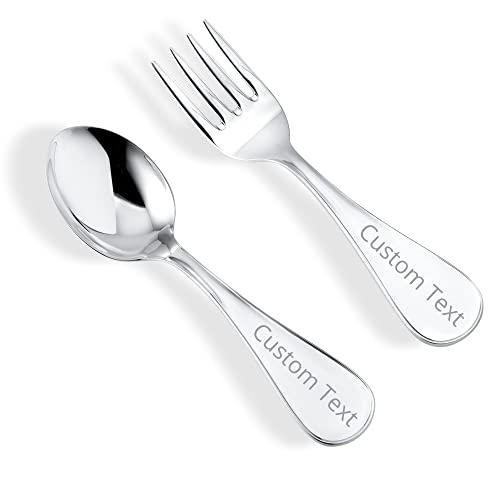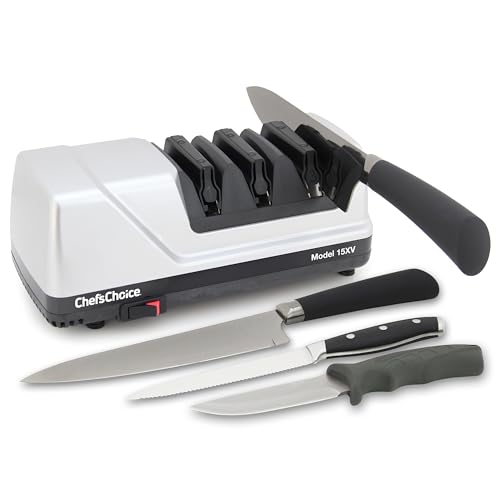
Introducing solid foods to your baby is an exciting milestone in their development. As they grow and explore new tastes and textures, it’s important to also introduce them to utensils such as forks and spoons.
When to give your baby a fork and spoon depends on their age and readiness. Around 6 to 8 months, babies can start practicing with a spoon. They may not be able to feed themselves perfectly at this stage, but it’s a great time to let them experiment with holding a spoon and scooping up soft foods like mashed bananas or yogurt.
As your baby approaches their first birthday, they will likely have better coordination and control of their hands. This is a good time to introduce a fork, which can be used to stab small pieces of soft food like cooked vegetables or fruit.
Remember, it’s a learning process for babies, so expect some messiness and plenty of food ending up on the floor. Encourage their exploration and provide plenty of praise and support as they navigate their way through self-feeding with utensils.
Benefits of Introducing a Fork and Spoon to Your Baby
Introducing a fork and spoon to your baby’s mealtimes can bring a range of benefits to their development. Here are some important advantages:
1. Independence and Fine Motor Skills
Introducing a fork and spoon encourages your baby to start self-feeding and develop their fine motor skills. As they try to grasp the utensils and bring food to their mouth, they enhance their coordination and dexterity.
2. Hand-Eye Coordination
Using a fork and spoon helps your baby practice hand-eye coordination. They learn to visually track food on their utensils and guide it accurately to their mouth, improving their coordination between their hands and eyes.
3. Speech and Language Development
Mealtime can be a great opportunity to introduce new words and concepts to your baby. As they use their fork and spoon, you can talk to them about the different types of food, colors, and textures. This helps expand their vocabulary and fosters speech and language development.
4. Social and Emotional Development
Mealtime with a fork and spoon can be a social experience for your baby. Eating together as a family promotes bonding and creates shared moments. It also encourages them to imitate your eating behavior and learn about mealtime etiquette, supporting their social and emotional development.
5. Introduction of Different Textures
Using utensils allows your baby to experience a wider range of textures. By using a fork, they can pick up small pieces of food, encouraging them to try different textures and flavors. This promotes their acceptance of various food types and can help prevent picky eating habits.
Remember, every baby develops at their own pace. Start introducing a fork and spoon when you notice your baby showing interest in self-feeding and have mastered basic finger foods. Ensure the utensils are safe, easy to hold, and encourage their independence and exploration.
Enhancing Motor Skills
Introducing a baby to using a fork and spoon can help enhance their motor skills development. As they learn to grasp the utensils and bring food to their mouths, they are practicing and improving their fine motor skills.
Using a fork and spoon requires coordination and control of hand movements, which helps strengthen their hand muscles and hand-eye coordination. It also helps develop their pincer grip, which is a vital skill for later activities such as writing or drawing.
A great way to encourage the development of motor skills is to provide baby-friendly utensils that are specially designed for their small hands. These utensils often have chunky handles for easier grasping and shorter lengths for better control.
| Benefits of Using Fork and Spoon for Baby: |
|---|
|
It is important to remember that introducing a fork and spoon to a baby should be done gradually and with supervision. Start with easy-to-handle utensils and allow the baby to explore and practice at their own pace. The process may be messy, but it is a valuable learning experience for the baby.
Encouraging Self-Feeding
Introducing your baby to self-feeding is an important milestone in their development. It allows them to explore different textures and tastes, develop fine motor skills, and gain a sense of independence. Here are some tips to encourage self-feeding:
Start with Finger Foods
When your baby is around 8 to 10 months old and has developed the ability to sit up and grasp objects, you can introduce finger foods. Choose soft and easily chewable options such as small pieces of fruit, cooked vegetables, or soft cheese. Encourage your baby to pick up the food and bring it to their mouth. Be patient, as it may take some time for them to get the hang of it.
Offer a Variety of Foods
Provide a wide range of nutritious foods for your baby to explore. This will help them develop a diverse palate and an openness to trying new flavors. Include foods from different food groups, such as fruits, vegetables, grains, and proteins. Offer a variety of textures, from soft and mushy to crunchy and chewy. Remember to introduce one new food at a time to monitor for any allergies or sensitivities.
Be a Role Model
Your baby learns by watching and imitating you, so be a positive role model when it comes to self-feeding. Eat meals together as a family, and demonstrate how to use utensils properly. Show enthusiasm for trying new foods and make mealtime a fun and enjoyable experience. Your positive attitude will encourage your baby to be more adventurous with their own self-feeding.
Allow Messiness
Self-feeding can be messy, but it’s an essential part of the learning process. Avoid the temptation to intervene and feed your baby yourself to keep things tidy. Instead, protect the floor and furniture with a drop cloth or mat, and use a bib or smock to keep your baby’s clothes clean. Embrace the mess and let your baby explore and learn at their own pace.
Remember, every baby is different, and they will progress at their own pace. Be patient and supportive, and celebrate each small achievement in your baby’s self-feeding journey.
Promoting Independence
As your baby grows, it is important to gradually introduce them to utensils such as forks and spoons to promote their independence. Starting around six to eight months of age, you can begin offering a small, lightweight spoon for your baby to hold and explore. At first, they may use it more for teething or banging on the table, but this is an important step in their development.
Encouraging your baby to self-feed with a spoon helps them develop their fine motor skills and hand-eye coordination. It also fosters independence and instills a sense of accomplishment when they are able to feed themselves. You can start by placing a small amount of food on the spoon and guiding it towards their mouth, allowing them to grasp it and practice bringing it to their mouth.
Similarly, introducing a fork can also be a fun and engaging way to promote independence. Baby forks are typically designed with rounded and dull prongs to ensure safety. By offering a fork, your baby can begin to practice stabbing and picking up soft and easy-to-grasp foods, like steamed vegetables or pasta.
Remember to always supervise your baby when they are using utensils to prevent any potential choking hazards. Start with safe, age-appropriate utensils, and gradually increase the level of difficulty as your baby becomes more comfortable and skilled with self-feeding.
It is important to note that every baby develops at their own pace, so be patient and allow them to explore and learn at their own speed. Providing opportunities for self-feeding with utensils is a great way to support their independence and development.







